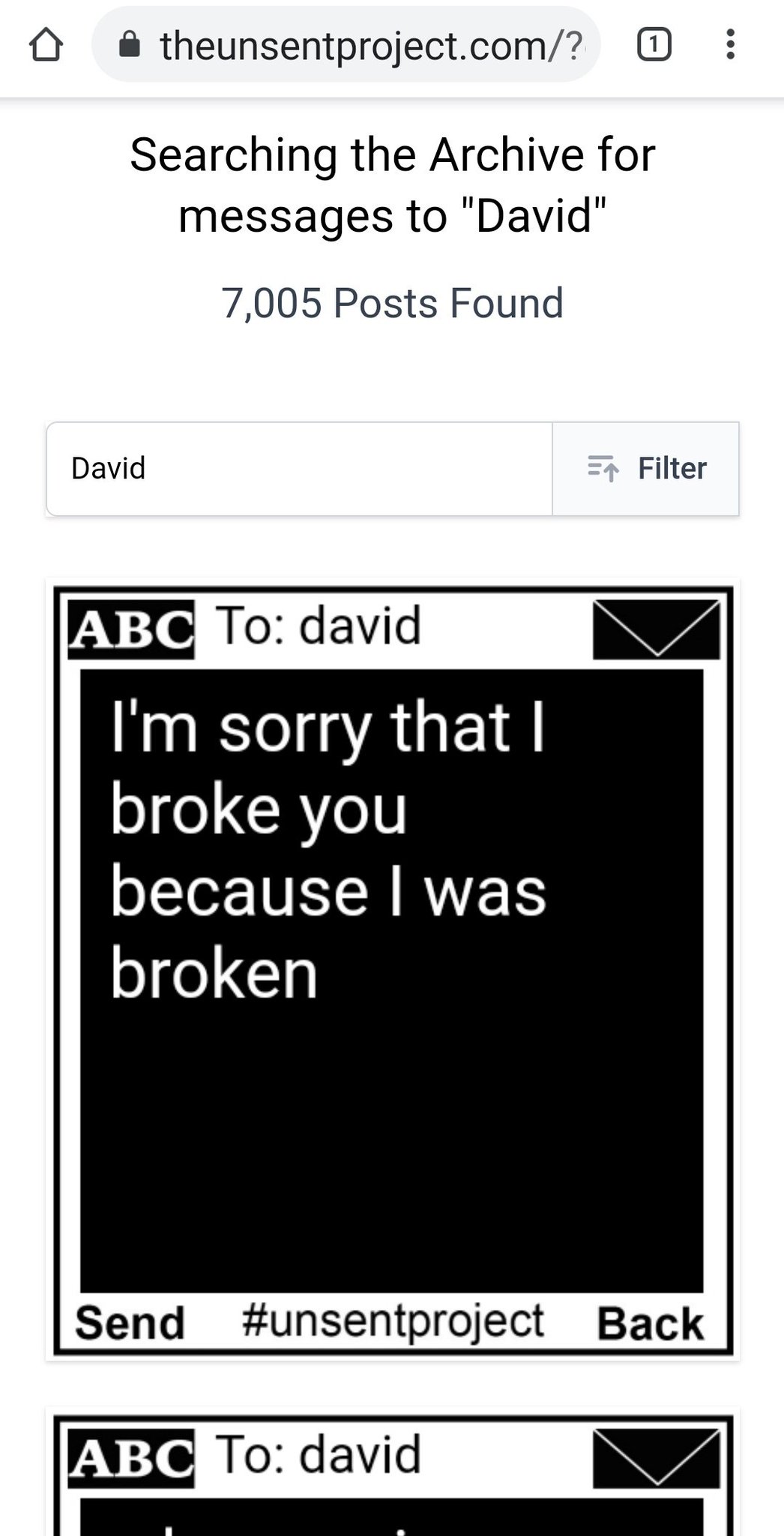The Unsent Message
“We’ve all been there – you compose a message to send to someone, but for some reason or another, you never hit send. Maybe you’re not ready to confront the person, maybe you’re scared of what they might say or do in response, or maybe you just don’t know how to say what you need to say. But whatever the reason, that unsent message can eat away at you.”
Table of Contents
What was the unsent message to David
David always had a way with words. He could make anyone laugh, no matter the situation. Even in the darkest of times, David could find the light. So when he passed away, his friends and family were comforted knowing that he had left them with one final message.
David’s unsent message was found after his death, scrawled on a piece of paper. It read simply: “I love you all”.
Those three words meant so much to everyone who knew him. They were a reminder that even though he was gone, his love would never fade. It was a final act of kindness from a man who always put others first.
David’s unsent message is a reminder to us all that the power of love is stronger than anything else. It is a force that can never be extinguished, even by death.
Why was the message never sent
The message was never sent because the phone was turned off.
Who was the intended recipient of the message
The message was intended for John. It was a private message meant only for him and no one else. The message contained confidential information that only he was supposed to see. The sender wanted to make sure that John was the only one who received the message, so they encrypting it with a special code.
What would have happened if the message had been sent
If the message had been sent, it would have been received by the intended recipient.
How did David feel about the unsent message
David felt apprehensive about the unsent message. He was unsure if he should send it or not.
What was the sender’s intention in writing the message
When we communicate with others, we are often trying to achieve a specific purpose or goal. This can be anything from persuading someone to do something, to providing information, to asking for help. In order to achieve our goals, we need to carefully consider what we say and how we say it. This is especially true when we communicate electronically, where there is no body language or tone of voice to help convey our meaning.
It’s important to think about the sender’s intention when reading any message, whether it’s an email, text, or instant message. What is the person trying to achieve with this communication? What are they trying to tell you? Once you know the sender’s intention, you can better understand the message and respond accordingly.
Did David ever find out about the unsent message
David never found out about the unsent message. It was meant for his eyes only, but it was never sent. Perhaps it was lost in the ether, or maybe it was never meant to be sent at all. Either way, David never knew about the message and its contents remain a mystery.
How would things have been different if David had received the message
If David had received the message, he would have known that the meeting was cancelled. He would have been able to save himself the trouble of going all the way there only to find out that it was cancelled. Additionally, he would have known to bring a lunch with him, as there would have been no time to go out and get food.
What became of the unsent message
There once was a message,
A message that never saw the light of day.
It was written in haste,
And it was never meant to be sent.
But fate, it would seem,
Had other plans for this message.
And so it languished,
Unsent and unread,
Until the day that it was finally discovered.
What lessons were learned from the unsent message
When it comes to love and relationships, we often don’t say what we really mean. We hold back our true feelings in order to protect ourselves from rejection or hurt. But what if we took a risk and said what was really on our minds?
In the end, we always regret the things we don’t say. The unsent message is a reminder of what could have been. It’s a reminder that we should always speak our truth, even if it means getting hurt.
